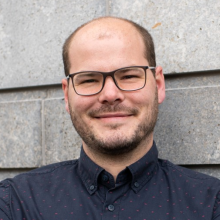Focus page for the "Science Year 2025 - Future Energy"

Rising global energy demand, limited resources and climate change are presenting governments and industry, as well as citizens, with new challenges. They give reason to think today about the energy supply of tomorrow. The "Science Year 2025 - Future Energy" is an initiative of the Federal Ministry of Research, Technology and Space (BMFTR) and Science in Dialogue and is dedicated to the solutions, ideas and unresolved questions that energy research is working on. Paderborn University is taking part in the Year of Science with a themed special to show how it can fulfil its global responsibility and shape society in a sustainable way, ensure intergenerational justice and preserve the natural foundations of life.
Future energy special
The energy supply of the future is at the centre of global challenges such as climate change, resource scarcity and increasing energy demand. Renewable energies - in particular solar, wind and hydroelectric power - are regarded as the central building blocks of a sustainable and climate-friendly energy future. Supplemented by modern storage technologies, smart grids and innovative concepts, a new, decentralised energy system is emerging.
The energy of the future is clean, safe, efficient and largely independent of fossil fuels. However, its realisation requires not only technological innovations, but also a rethink towards a sustainable transformation of the economy and society.
In this special issue, we present a selection of current projects, interdisciplinary research and pioneering ideas with which Paderborn University is actively contributing to the energy transition.
Current articles on the topic of future energy
Energy research in Paderborn
Paderborn University researchers are investigating various aspects of the energy transition in order to create the clearest possible picture of the conditions for success and develop holistic solutions. Together with strong economic and corporate partners, they are developing solutions for the transformation of industry, for example. The focus here is primarily on sustainable process heat, the circular economy, energy storage and artificial intelligence (AI) in connection with climate protection and data collection. However, the focus is also on systems engineering, neighbourhoods and buildings: as part of a research project, scientists at Paderborn University have worked with industrial companies to develop a system that simultaneously supplies buildings with electricity, heat, cooling and fresh air, is energy-efficient and relies entirely on renewable energies. Another project aims to support the energy-efficient refurbishment of apartment buildings in neighbourhoods with digital tools. Among other things, an AI-based energy manager is being developed that can predict and control energy demand and supply in the context of integrated solar heat pump systems across several flats and buildings. The project is in the field of business informatics.
The research and further development of solar cells, for example, is also part of Paderborn University's portfolio. Here, natural scientists in particular are working on achieving ever better efficiency levels. In another project, entire neighbourhoods are becoming real-world laboratories: In Bielefeld, Borchen and Verl, the labs aim to break down barriers to the construction and operation of climate-friendly neighbourhoods. To this end, an interdisciplinary project consortium is developing solutions from a technical, social and economic perspective in order to combine climate protection, energy security and economic efficiency by intelligently networking all energy-relevant factors in neighbourhoods.
In addition to numerous research projects, Paderborn University has also institutionalised the scientific field of energy research, which is essential for the energy transition. One example is the "KET": scientists from the Faculty of Mechanical Engineering and the Faculty of Computer Science, Electrical Engineering and Mathematics work together at the Competence Centre for Sustainable Energy Technology. Their common goal is to advance interdisciplinary research in the fields of innovative energy generation and efficient and environmentally friendly energy utilisation. To this end, they research cross-sectoral concepts, systems and components in order to realise the energy transition in the electricity, heating, industrial and mobility sectors. As the university's central scientific institution, the centre bundles interdisciplinary energy technology expertise for sophisticated interdisciplinary research.
Profile area "Sustainable materials, processes and products"
Climate protection and resource conservation are key tasks for our society. The natural sciences and engineering can contribute to improved sustainability by developing innovative construction, joining and manufacturing processes, optimising production and simulation processes and researching sustainable energy supply solutions. In order to cover this enormous breadth of research, Paderborn University's "Sustainable Materials, Processes and Products" profile area brings together interdisciplinary research from Mechanical Engineering, Chemistry, Physics and Electrical Engineering.















